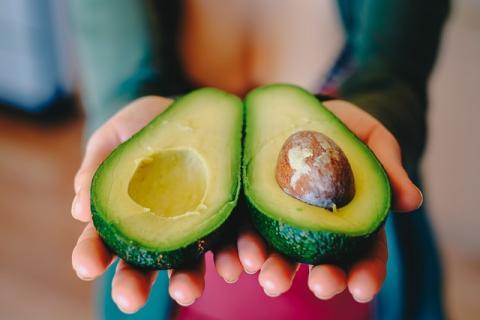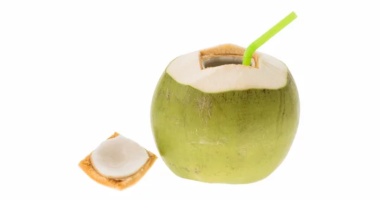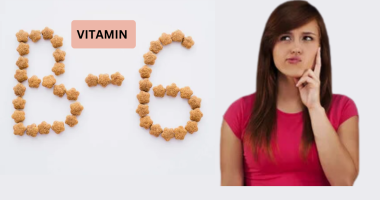

Eating the right kind of liver foods is the best for organ protection. The liver which weighs about 3 pounds in healthy adults, is one of the body’s most vital organs. It is in charge of many important functions related to digestion, metabolism, immunity, and the storage of nutrients that the body requires to survive.
Meanwhile, the liver is a gland that secretes chemicals required by other parts of the body. In fact, the liver is the only part of your body that is both an organ and a gland.
Healthy liver checkmate the composition of blood removes harmful toxins from the blood as well as processes and converts nutrients absorbed by the intestines during digestion into forms that the body can use. It also stores some vitamins, iron and simple sugar glucose. It is also responsible for breaking down insulin, hemoglobin and other hormones. In addition, it destroys old red blood cells and produces chemicals needed for blood to clot properly. Because the liver is responsible for so many vital functions in the body and it is important to keep it healthy.
The implication of Unhealthy Liver
An unhealthy diet and poor lifestyle can overwork and overload the liver, leaving it unable to process toxins and fat efficiently. When toxins and fats are not well processed it affects the liver, this, in turn, raises numerous health problems such as:
- Obesity
- Cardiovascular disease,
- Chronic fatigue, headaches,
- Digestive problems,
- Allergies and many other health problems.
Common Symptoms of Unhealthy Liver
- Yellow Skin ( including eyes and mouth)
- Fatigue
- Decreased Appetite
- Weakness
- Easy Bruising and Bleeding
- Itchy Skin
- Altered Brain Function
- Spider Veins
Foods that help protect your Liver
Every day you make decisions that affect your liver health. The choices you make on household product purchases, food consumption, and daily activity can have positive or negative effects on your liver. There are many good foods that can help cleanse, rejuvenate and detoxify your liver. The foods mentioned below will help keep your liver healthy and functioning the way you need it to.
Apples
An apple a day is the secret behind a healthy liver. Apples are a good source of pectin, a soluble fiber that helps remove toxins from the digestive tract and cholesterol from the blood, in turn preventing the liver from being overworked. Moreover, apples contain malic acid, a naturally cleansing nutrient that removes carcinogens and other toxins from the blood. All types of apples are good for your liver, however, for fast liver cleansing choose organic apples. Eat one organic apple or drink a glass of fresh apple juice daily.
Avocados
Avocados are foods good for liver repair. They contain potent chemicals that may reduce liver damage, according to a 2000 study by the American Chemical Society. This fruit is rich in glutathione, a compound required by the liver to cleanse harmful toxins and to function properly.
The high amount of monounsaturated fat in avocados helps reduce low-density lipoproteins or “bad” cholesterol and increase high-density lipoproteins or “good” cholesterol. The liver easily processes good cholesterol. Moreover, avocados contain many minerals, vitamins, and plant nutrients that support overall liver health and help break down fats. Eat 1 to 2 avocados per week for a couple of months to help reverse liver damage.
Turmeric
Turmeric is another popular and effective liver-cleansing food. It also improves the body’s ability to digest fats. The compound curcumin in turmeric induces the formation of a primary liver detoxification enzyme called glutathione S-transferase. It also helps regenerate damaged liver cells. Mix ¼ teaspoon of turmeric powder in a glass of water and boil it. Drink it twice daily for a couple of weeks.
Also, include this spice in your daily cooking.
Lemons
Lemons help detoxify the liver mainly due to the antioxidant D-Limonene present in it, which helps activate enzymes in the liver that aid detoxification. Moreover, the high amount of vitamin C in lemons helps your liver produce more enzymes to aid digestion. Lemons also boost mineral absorption by the liver.
Make lemon water at home by adding the juice of 1 lemon to a jar of water. You can even add chopped lemons to it. Drink this water at regular intervals. If desired, add a little honey.
Green Tea
By drinking green tea daily, you can help your body flush out toxins and fat deposits while increasing hydration levels.
A 2002 study published in the International Journal of Obesity found that the catechins in tea help stimulate lipid catabolism in the liver. This, in turn, prevents fat accumulation in the liver. This healthy beverage also protects the liver from the damaging effects of toxic substances like alcohol.
There is a significant protective effect of green tea drinking on liver diseases. Specifically, green tea intake is associated with decreased risk of HCC, fatty liver disease, hepatitis, liver cirrhosis and chronic disease stu NCBI
Green tea is also beneficial in treating or preventing liver disease. According to a 2009 study published in Cancer Causes and Control, people who drink green tea have a lower risk of developing liver cancer. Drink 2 to 3 cups of green tea daily. If desired, sweeten your tea with honey.
Note: Avoid drinking green tea in excess as it can have an adverse impact on your liver and other body parts.
Garlic
Garlic is great for cleansing your liver. It helps activate enzymes in the liver that help clear out toxins. It also contains two natural compounds called allicin and selenium, which aid in the liver-cleansing process and protect the liver from toxic damage. Moreover, garlic reduces cholesterol and triglyceride levels, which can overload the liver and hamper its functioning.
To promote liver health, use fresh raw garlic instead of processed, minced garlic or powder. Eat 2 to 3 raw garlic cloves daily and include garlic in your cooking whenever possible. You can also take garlic supplements, but only after consulting your doctor.
Beetroots
Beetroots are another powerful liver foods that cleanse and support liver function. High in plant flavonoids and beta-carotene, they help stimulate and improve overall liver function. Moreover, beetroots are natural blood purifiers.
Simply add fresh beetroots or juice to your daily diet. Make a powerful liver-cleansing salad with 1 cup of chopped or grated beetroots, 2 tablespoons of cold-pressed extra-virgin olive oil and the juice of ½ lemon. Mix all the ingredients together and eat 2 teaspoons of it every 2 hours during the day for a week.
Also read: 13 health conditions including diseases you never knew beetroot could improve if not cure
Grapefruit
Being a good source of vitamin C, pectin and antioxidants, grapefruit also aids the natural cleansing process of the liver. It also contains glutathione, a powerful antioxidant that neutralizes free radicals and detoxifies the liver. Glutathione as well helps in the detoxification of heavy metals. Moreover, the flavonoid naringenin in grapefruit helps break down fat. Drink a small glass of freshly squeezed grapefruit juice or enjoy the whole fruit with your breakfast daily.
Fatty Fish
Fatty fish enhances heart health and provides other health advantages. Fish oil includes omega-3 fatty acid and has excellent anti-inflammatory characteristics to heal any damaged tissues and cells and to help your body heal from any ailments. Fatty fish also enables individuals to heal pain and depression. The fats found in fatty fish also benefit the liver. Studies have shown that they help avoid the formation of fat, maintain ordinary concentrations of enzymes, combat inflammation and enhance insulin resistance.
While it seems to be useful for your liver to consume omega-3-rich fatty fish, it is expedient to balance the dose with the same as omega-6 fats. Most Americans exceed the intake recommendations for omega-6 fats, which are found in many plant oils. An omega-6 to omega-3 ratio that is too high can promote the development of the liver disease. Therefore, it’s a good idea to reduce your intake of omega-6 fats, too.
Oatmeal
Taking oatmeal is an easy way to add fiber to your diet. Fiber is a significant digestive aid for the body The fibers found in oats can be of great help to the liver. Go for whole oat or steel-cut when looking for oats or oatmeal to add to your diet instead of prepackaged oatmeal. Prepackaged oatmeal may contain fillers such as flour or sugars, which will not be as beneficial for the body.
Final Note…
The liver performs a significant number of roles in the body. Though it can take care of itself, individuals should not neglect their own inputs in maintaining a healthy liver. Eating the right food is one thing you should take seriously. However, knowing the right food for your liver can sometimes be difficult which is what this article is for. Adding the above-mentioned foods to your daily diets will not only take care of your liver but also help brighten your skin and avoid other potential health issues.






